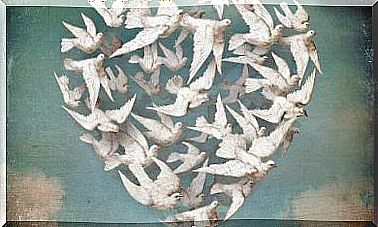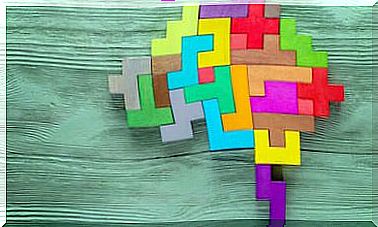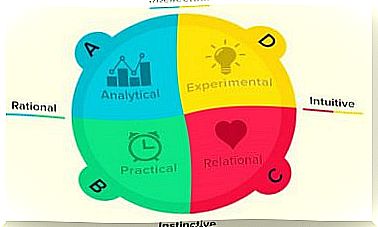The Mind Is Our Best Ally In Difficult Situations

It is the most powerful tool we can count on, and it sits just above our shoulders, dotted around our brain; we are of course talking about our mind. Its functioning is so powerful and at the same time so particular that it is the main pen by means of which we write our destiny.
It has been a few years since the idea that you only use 10% of your potential became famous . Later, it was observed that in reality things are more complex than that, because if you do rely on limited processes, such as the ability to stay alert or to keep short-term memory, you also relies on other processes that seem to know no boundaries, such as the ability to imagine or learn.

So it is clear that what we can do with our mind is endless. However, if we observe the majority of our behaviors, we will realize that what intervenes the most in them are habits or mental programming. Habits where a certain disconnection occurs on a known route. Equally well known is the action that we release in our mind to work with ideas disconnected from this present.
In addition, generally our mind is intelligent and its default self-regulation always tries to work by minimizing energy consumption. We are thinking here of our ancestors and the difficulty in accessing certain types of essential nutrients.
Indeed, one can think that a mental energy saving was necessary so that they could spend the day hunting or running behind their prey. For example, it has been proven that the best long distance athletes share a common characteristic, namely their more developed than average cerebral oxygenation during long and intense efforts.
Once it is clear that our mind does not like wasting energy because it fears it will run out and that many of the activities that we do are in automatic mode, we will understand that perhaps , of course, we do not use 10% of our capacity, but it is certain that there is a good part that we do not use. What is really important is knowing what repercussions this can have.
The part that we do not use of our mind – according to the norm, because there are always exceptions – is above all linked to creativity and the search for new solutions. Much of the resistance to change has this biological reason, and it goes against the brain’s tendency to economize. Perhaps our way of doing things is not the best, but changing the one we have already adopted for another involves, apart from uncertainty, a waste of energy.
Let’s take a trip back to the Middle Ages, and witness the judgment of an accused. The judge would like to condemn the accused at all costs, but in order not to arouse any suspicion, he suggests that the accused draw a piece of paper in a box: on one is written “guilty” and on the other, “innocent”.
However, the judge wrote “guilty” on both … but the accused guessed it, since he and the judge have not liked each other for some time. What do you think the accused did? He could have denounced the judge, but if his assumption had been wrong, he would have been convicted. On the other hand, if his hypothesis had been verified, the judge would have been removed from his post, but there was nothing to assure the accused that his replacement would be better.
The accused then ate one of the two papers. Then he added that it was enough to look at the one that was left in the box and deduce the opposite to know the fate that was going to be reserved for him. Obviously, the remaining paper said “guilty”, and the accused was freed by an angry judge who found himself caught in his own trap.
Let us return to the present; we cannot forget that we all rely on a tool resembling that of the intelligent accused and that we can use it to save or improve our lives: we speak of our mind. It is certain that we cannot control everything, but it is also certain that often this control goes beyond what we estimate. So, in this difference between estimation and reality, between genius and repetition, lies our true potential.









